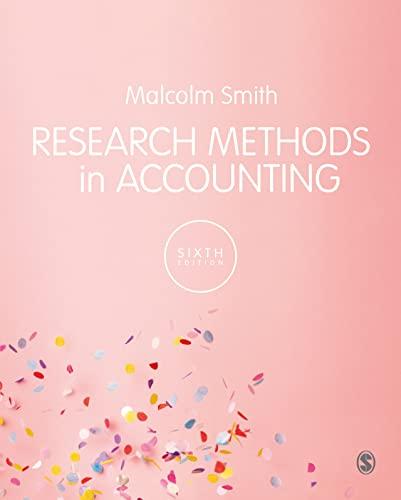Question
Is it better if the U.S. dollar rises in value or if the U.S. dollar falls in value against other countries' currencies? The question is
Is it better if the U.S. dollar rises in value or if the U.S. dollar falls in value against other countries' currencies? The question is important because a government can intervene to raise or lower the value of a currency relative to other currencies. However, such interventions are controversial because they can create "consequences".
Who would potentially gain and who would potentially lose if the USD gets *stronger (appreciates) against mentioned countries currencies or Euro? (You need to explain your answers to get full credit).
For example, let's say I am in Germany and decide to buy a BMW there and the foreign exchange rate is 1 USD = 0.86 Euro and the BMW cost 30,000 Euro. That means I need to have $1/0.86 Euro =$X/30000 Euro.
Solve for X = $34,883.72
Now, the USD gets strong so the foreign exchange rate is 1 USD = 0.95 Euro
Now $1/0.95 Euro = $X/30,000 euro, so I only need $31,578,85.
The 30,000 euro price for BMW didn't change. But because the USD got stronger against the Euro, the purchasing power of the USD got stronger which means it takes less USD to convert to 30,000 euros.
In general, when a country's currency value increases against another country's currency, it helps the countrys importers but exporters will not like it because their products become less competitive (Got more expensive for other countries to buy). This works in reverse when a country's currency value decrease against foreign countries.
Questions:
1) Henri is a French winemaker who is exporting his wine to the US market. With the increases in USD against Euro (Ceteris paribus), will this help (gain) Henri's wine exporting business (to the US), or will it be the other way (loss)? (1 point)
2) A US company is exporting computers from the U.S. to Belgium. With the increases in USD against Euro (Ceteris paribus), will this help (gain) the US company's exporting business (to Belgium), or will it hurt (lose) the company's exporting business? (1 point)
3) Maximillian is a German student studying at MSU. With the increases in USD against Euro (Ceteris paribus), will this require more or less Euro from home to study at MSU (Assuming the living budget in USD stays the same) (1 point)
4) With the increases in USD against Euro (Ceteris paribus), will American consumers (like you and I) benefit or lose from this change when we buy imported goods from Europe, like cars made in Europe? (Assuming US importers will pass on their gains or losses to the consumers to be competitive) (1 point)
5) An Italian textile firm is about to build a factory in South Carolina. With the increases in USD against Euro (Ceteris paribus), will this increase or decrease the Italian textile firms original budget (The amount of euro they need to convert to USD?) (1 point)
6) Mr. Choe is vacationing in Europe where the euro is mainly used. With the increases in USD against Euro (Ceteris paribus), what happened to my purchasing power (increased or decreased) if I set my budget to $2,000 spending while I am there? (1 point)
Now, let's play with numbers to explain the concepts above.
7) Yesterday, 1 Euro was worth $1.22. What is the euro price of a dollar? (In other words, $1 USD is worth how much Euro?) 1 point
8) iPhone XS Max costs $1,449 USD. How much the phone will cost in the following countries currencies based on the conversion rates given below? (1 point each x 5 = 5 points total)
| Country | Currency | Conversion Rate |
| CANADA (?) | DOLLAR (CAD) | 1 CAD = 0.787464 USD |
| CHINA (?) | YUAN (CNY) | 1 CNY = 0.1593245 USD |
| GREAT BRITAIN (?) | POUND (GBP) | 1 GBP = 1.3631 USD |
| JAPAN (?) | YEN (JPY) | 1 JPY = 0.0094313 USD |
| MEXICO (?) | PESO (MXN) | 1 MXN = 0.056506 USD |
9) If the USD (value) appreciates against the above foreign currencies, will that make the iPhone more expensive or cheaper for them to buy? 1 point
10) If a PlayStation 4 costs 30,000 yen in Japan, how much will it cost in U.S. dollars if the exchange rate is (2 points each x 3 = 6 points total)
(a) 110 yen = $1?
(b) 1 yen = $0.009?
(c) 100 yen = $1?
11) As you can see from your answers above, the cost of the PS4 didn't change BUT your price to buy the PS4 changed just because the foreign exchange rate between the two countries changed. When you compare the prices between a and c, did it get cheaper or more expensive?
Step by Step Solution
There are 3 Steps involved in it
Step: 1

Get Instant Access to Expert-Tailored Solutions
See step-by-step solutions with expert insights and AI powered tools for academic success
Step: 2

Step: 3

Ace Your Homework with AI
Get the answers you need in no time with our AI-driven, step-by-step assistance
Get Started


